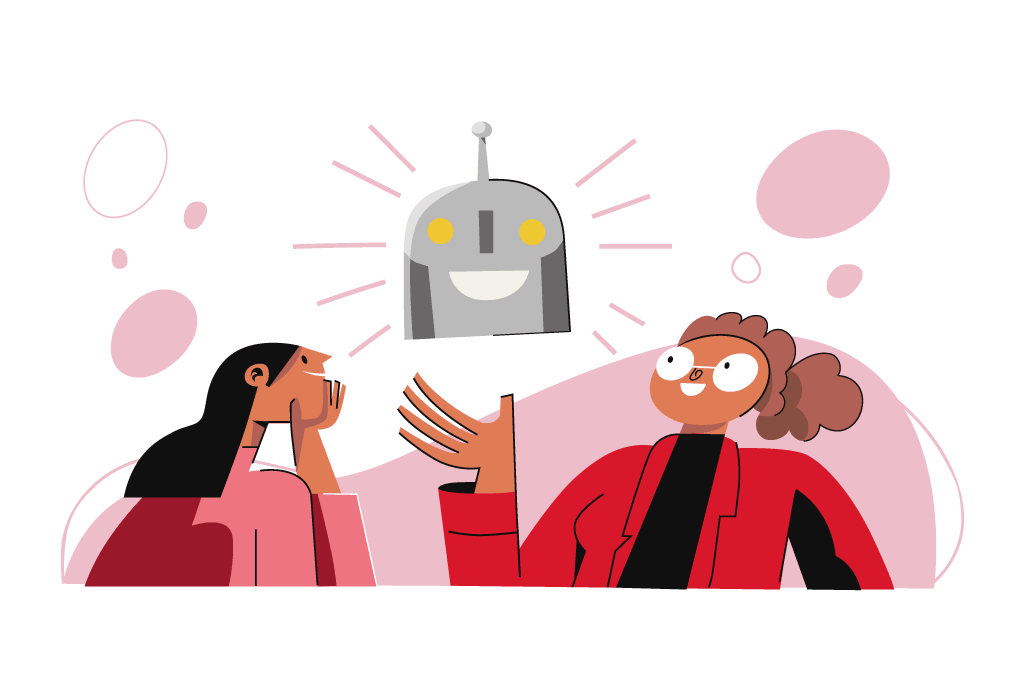ChatGPT and the Future of Technical Interviews: Addressing Concerns of Increased Cheating

The invention of ChatGPT has certainly raised no shortage of questions for all of us. These questions seem mostly to be grounded in fear – anxiety that ChatGPT will replace the need for our jobs, our unique skills, and our need to think in order to contribute to an organization.
Due to this, many of the questions we get asked at CoderPad have to do with how to keep ChatGPT from messing up the recruiting process.
- How do we ensure candidates aren’t cheating by using ChatGPT in an interview?
- What measures are we planning to take to ensure ChatGPT isn’t used in the code submitted in assessments?
- And maybe the unasked question by some – Is ChatGPT going to replace the need for some developer hires entirely?
At CoderPad, we believe in embracing new technologies, including the notorious ChatGPT.
In the world of software development, we don’t consider using Google or StackOverflow to help look up a function or using autocomplete and GitHub Copilot for efficiency to be cheating. In fact, these tools increase efficiency and make your hard-working developers even more efficient.
These technologies are a critical part of a developer’s tool kit.
They help developers to code smarter and more efficiently than they could have otherwise.
They prevent developers from recreating the wheel and instead allow them to move projects forward by creating the next wheel better and faster.
We are not saying that the job of developers is to be an expert copy and paster, but rather to leverage tools available to develop more creative, well-thought out solutions in the limited time that they have.
Developers utilizing StackOverflow and Google for guidance on technical issues was also once seen as a threat to the recruiting process, as this was seen as a way for candidates to have an unfair advantage over candidates who did not know where to look for technical guidance.
We find the modern conversation about the validity of using co-pilot and ChatGPT as a tool in interviewing as a similar conversation to the one we were having decades ago about StackOverflow and Google.
Amanda Richardson – CEO of CoderPad
Knowing how to use technologies is a skill that developers are expected to have and one that should be assessed for. We see models like ChatGPT as the next set of technologies – and these technologies help developers be better, but can’t replace problem solving, creativity and logic.
How should employers hire for developer talent in the world of ChatGPT?
ChatGPT and the asyncronous technical assessment
First, during the asynchronous technical assessment phase, allow candidates to use AI models to come up with answers.
You can then follow up with written questions asking the candidate to critique the code produced by the model.
- How does it work? Write a readme file on how the code works.
- What would they have done differently to solve the problem?
- What could improve the code performance?
Allowing ChatGPT during a live interview
During a live interview, we recommend spending time digging into the why behind the candidate’s work.
Ask questions that help you to assess how the candidate is thinking and problem solving. Allow candidates to use ChatGPT to assist in problem solving and then talk through how you would approach a code review.
If you have concerns that the candidate used an AI model to develop code and just copied it, you can determine so by using CoderPad’s playback feature. This allows the interviewer to playback the candidate’s keystrokes and will make it obvious if code was copied and pasted in from an AI model.
Ultimately, ChatGPT is not an excuse for a developer not to think or a replacement for understanding how code works – in the same way that using a calculator is not a replacement for a math student knowing how to subtract or divide. However, it is a way to get things done in a new and faster way. And when coupled with problem solving, creativity, and logic – it can make a great developer into an even stronger one.